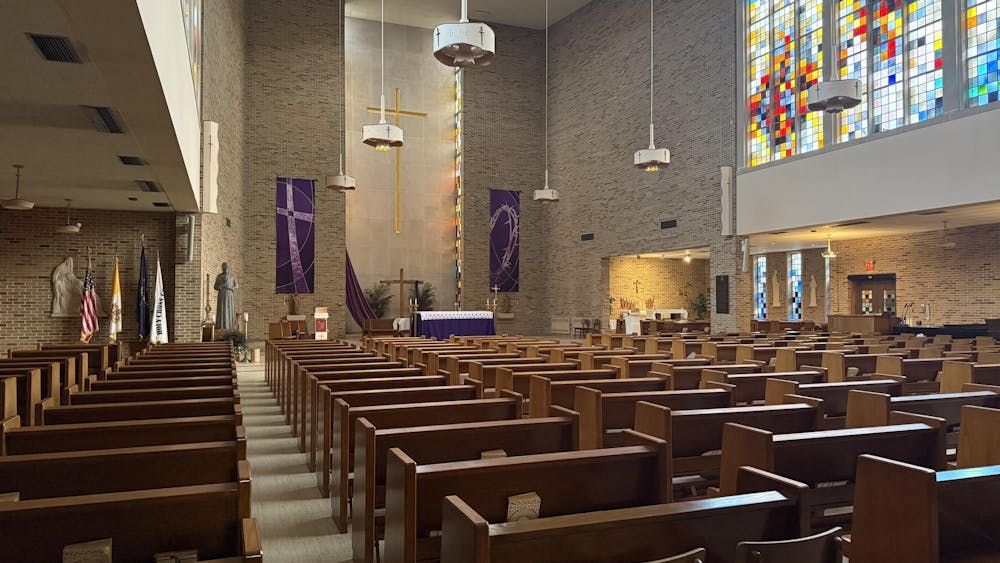Following a contentious debate Monday evening, Notre Dame’s student senate rejected a resolution to increase funding for student clubs and organizations.
The resolution proposed to reallocate three percent of the Student Union organizations’ budgets toward other student clubs and organizations, cutting the Student Union budget by approximately $30,000. Opponents to the resolution argued that the budget cuts would hamstring Student Union organizations.
“If we force these class councils to become profit-seeking, it corrupts their mission. Our goal is just to unite the class,” Sam Cannova, president of the Sophomore Class Council, said.
Student body president Gates McGavick and vice president Corey Gayheart campaigned on a promise to increase funding for student organizations. Since taking office, the two have faced major financial obstacles to fulfilling that promise.
“This isn’t going to solve all our problems, because clearly there’s a way larger financial need than we have resources to meet,” Gayheart said of the resolution.
Ultimately, a majority of senators concluded that the problems the resolution posed for the Student Union organizations outweighed the benefits it promised other clubs. But many student government leaders saw the vote as a lost opportunity.
Alyssa Ngo, chair of the Diversity Council, said that diversity clubs desperately need more funding. The Asian American Association, which last year requested $3,500 in funds from the Club Coordination Council (CCC), was only granted $150, Ngo said.
“Especially with the emphasis, this year and in general, on Notre Dame supporting diversity and inclusion, these aren’t really clubs that we can [cut funding from],” Ngo said.
But other senators worried that the reallocated funds might not be redirected toward diversity clubs or minority student organizations.
“Student clubs have a more than $340,000 budget. Where is it going?” Welsh Family senator Lindsay McCray asked. “Why are we hammering on this topic and saying that it will help the diversity clubs when we have no evidence that it will?”
McCray criticized the closed-meeting policy of the CCC, which decides how to allocate annual funding for student clubs and organizations.
“Because of their bylaws, the CCC will not release any financial information,” McCray said in a comment following the meeting. “I understand that people want more funding for clubs — I do too — but before we make budget cuts to other organizations, we need financial transparency from the CCC so we know how the money we give them is being spent.”
According to Samantha Scaglione, the president of the CCC, all undergraduate clubs and organizations collectively projected $2.2 million in expenses last year. The Financial Management Board only granted the CCC $339,000 to distribute between more than 400 clubs. With a limited budget and massive student need, the CCC cannot meet every club’s requests.
“Everyone here is doing great work, and unfortunately, we’re left fighting over the scraps right now,” Gayheart said.
Although Monday’s debate hinged on a small reallocation of funds, it illuminated the staggering funding scarcity that Notre Dame student organizations currently face.
In an interview after the meeting, Gayheart said that he and McGavick are working to develop alternative solutions to this problem. McGavick and Gayheart plan to work with the CCC to ensure funding is being used efficiently, and they hope to develop targeted funding campaigns for student organizations.
“We’re not doing this because it was a campaign promise … We’re doing this because there’s very clearly a need that’s not being met,” Gayheart said.
Read More
Trending









